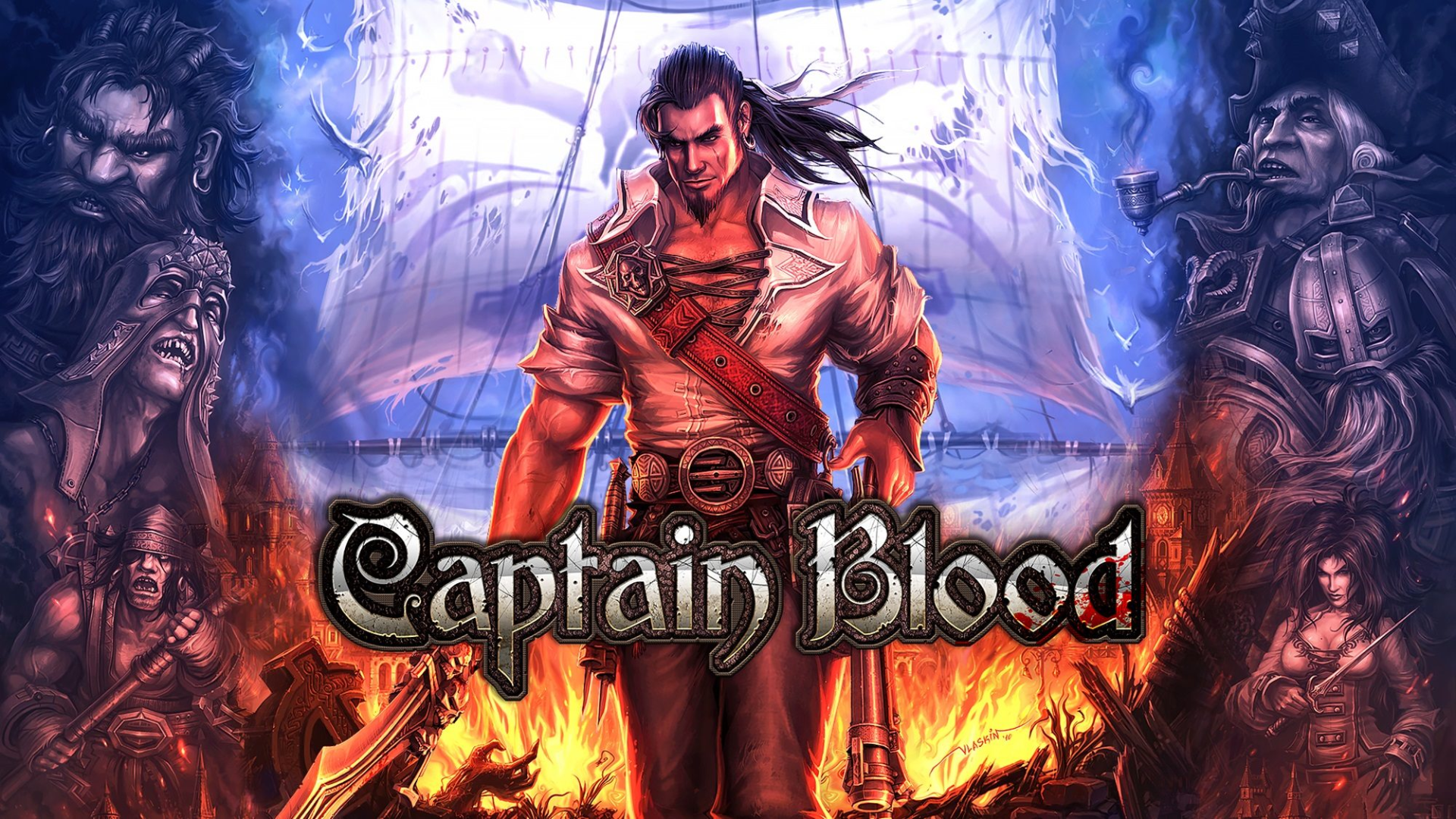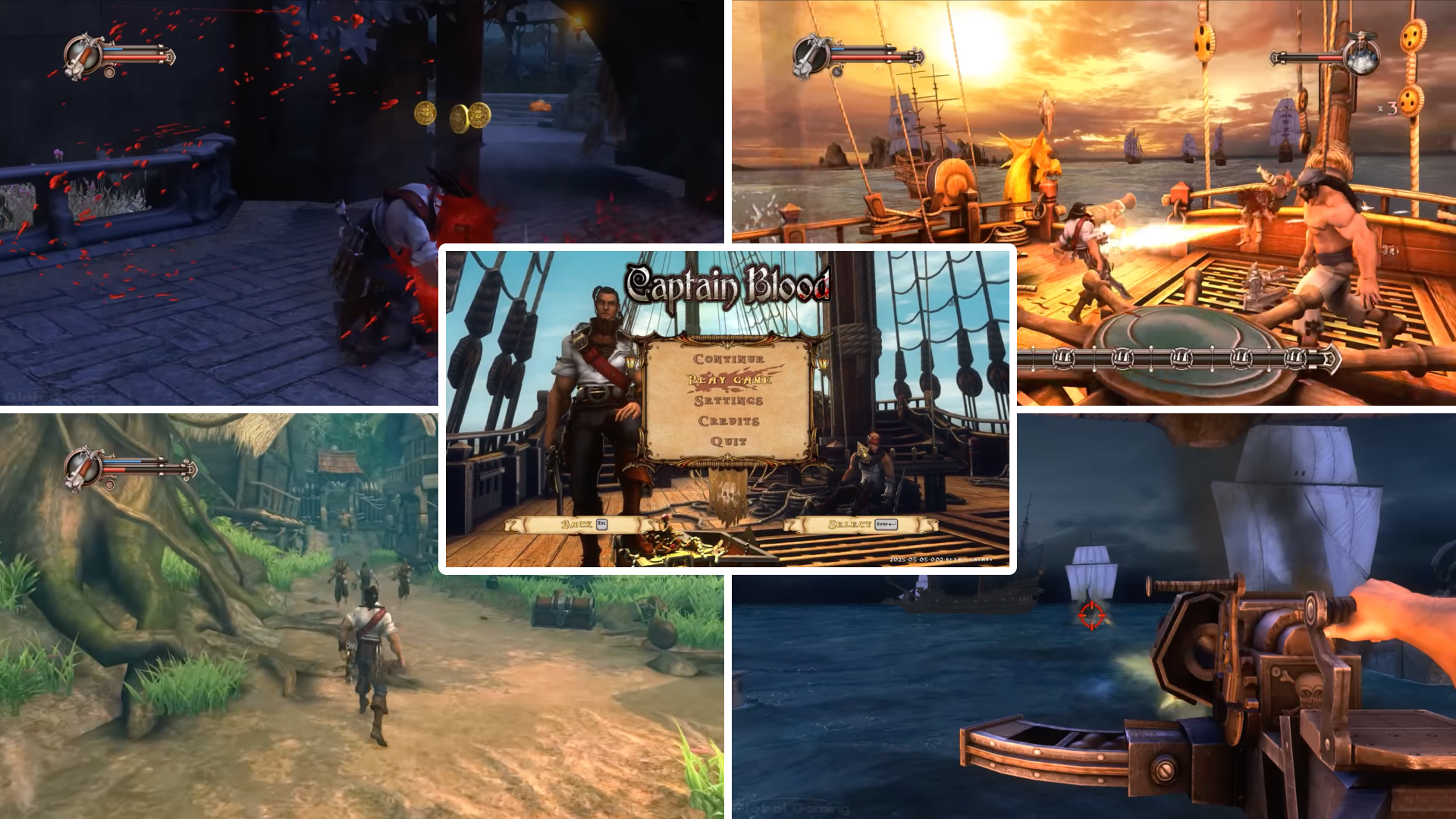A 1922 template, a 2003 development start and a 2025 release. More details: here!

Despite the inherent appeal of pirate-themed video games, offering players a romanticized take on crime-driven seafaring without the numerous real-world drawbacks, recent years have shown that making a good one can be surprisingly difficult.
After last year's much-delayed Skull & Bones disaster, any publisher willing to back a pirate title with a troubled development would need to be either very brave or very foolish – especially when that title was originally cancelled a decade and a half ago.
Setting Sail
In this case, the (original) publisher was Russian studio Akella, who had previously experienced success with pirate games like Sea Dogs (2000), which was conceived as a pirate-themed strategy role-playing game set in a 3D archipelago, combining elements of sailing, naval combat and character-driven narrative, partly inspired by Sid Meier's Pirates! (1987).
Players control Nicolas Sharp, who, after escaping Spanish imprisonment, begins a life at sea within a fictional Caribbean-style archipelago, where players must both manage their ship and crew by trading aligning with certain powers, while also occasionally battling on foot and on ship in a non-linear sandbox system.
Following its sales success, work quickly began on Sea Dogs II, which would later be rebranded to Pirates of the Caribbean (2003) as a film tie-in. Due to legal reasons, the studio would later abandon the Sea Dogs name, deciding to split teams to develop two separate sequels: One being Age of Pirates: Caribbean Tales (2006) by "team SeaDogs" and the other the subject of this article: Age of Pirates: Captain Blood, later shortened to just Captain Blood, by "team SeaWolves".
Duelling It Out
Captain Blood was positioned as the more experimental of the two, adopting neither the story threads nor strategy RPG gameplay of Sea Dogs, unlike Caribbean Tales. Instead, the title aimed to elaborate on the combat mechanics, shifting focus to action and spectacle while retaining the 17th-century Caribbean pirate setting of the studio's previous games.
Storywise, players assume the role of Peter Blood, the titular pirate from the novel Captain Blood: His Odyssey (1922) by Rafael Sabatini, navigating 1685's Spanish Main and coming into conflict with various European powers. While the game uses the novel's premise of a wronged man becoming a pirate, it significantly simplifies characters and narrative beats.
On the gameplay front, Captain Blood makes use of typical 2000s hack-and-slash mechanics (like those found in oldschool God of War or Bayonetta) with sword fights, pistol shooting, dramatic finishers as well as ship-to-ship combat. The title prides itself on its era-appropriate weapons, combo attacks, and execution moves for defeated foes.
Going Adrift

The development of Captain Blood first began in 2003 under Akella, who initially planned for the game to release in 2006. The project experienced multiple restarts as leads changed and its scope and release platform shifted (from Xbox to Xbox 360). In 2008, Akella sold "team SeaWolves" to Russian publisher 1C, having them continue development there.
By around 2010, the game was effectively cancelled, when publisher Playlogic Entertainment, to whom the rights had shifted by then, had to file for bankruptcy, while legal disputes over the IP between Akella, Playlogic and 1C stalled the release indefinitely. Much later, a nearly complete build leaked online and the project became a well-known case of development hell.
In the early 2020s, a new company called SNEG, founded by alumni of Akella and the original team, decided to acquire the rights and revive the project in collaboration with Malaysian studio General Arcade. The game was finally released for modern platforms in May 2025, bringing the long-lost title to market about two decades after its inception.
Returning To Port
With development of the original having come quite far, the team essentially only had to polish the existing Xbox 360 code for its release across all major modern platforms. The developers themselves considered the title to be "a 3 or 4" on a 10-point-rating scale by today's standards, instead highlighting their aim of game preservation. Most review outlets rated the game a slightly more generous 6 or 7, remarking that it indeed felt like an Xbox 360 title.
Especially for the small, but dedicated Age of Pirates fan base, the release certainly provided an interesting perspective on how the franchise could have evolved if Captain Blood had been a successful release. Instead, the simulatenously-developed Age of Pirates: Caribbean Tales (2006) was later followed by Age of Pirates 2: City of Abandoned Ships (2009), with both games receiving digital re-releases in 2017.
Akella would later briefly regain the Sea Dogs license and end the series with Sea Dogs: To Each His Own (2012) before going bankrupt the same year. Notably, the original Russian names of the series had consistently remained Корсары, though any future project carrying any of the franchise's established names is nowadays less likely to appear than ever before.


































